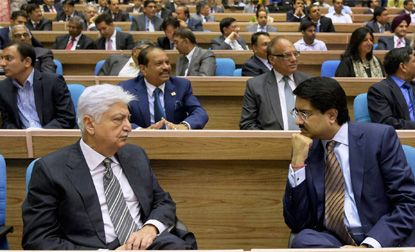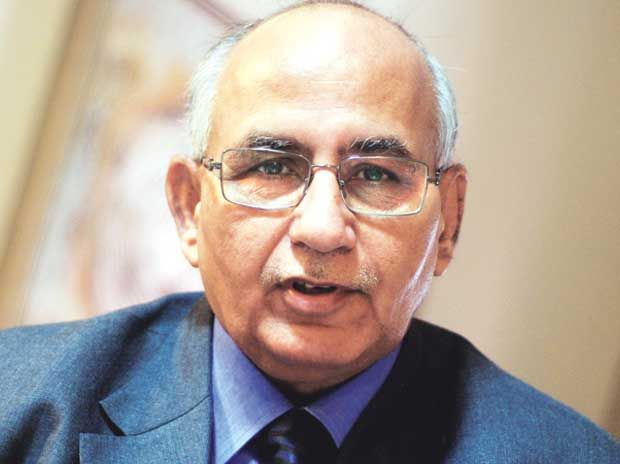
National Advisory Committee on Accounting Standards (NACAS), a body of experts set up under the Companies Act, 1956, advises the government on formulating and laying down accounting policies and standards.
It has been mandated to facilitate the adoption of International Financial Reporting Standards (IFRS)-compliant accounting standards, Ind-AS, by Indian companies.
Amarjit Chopra (pictured below), chairman of NACAS and former president of the Institute of Chartered Accountants of India, tells Sudipto Dey how businesses should overcome the challenges in adopting the new standards. Excerpts:
How prepared is corporate India to adopt the new accounting standards?
Compared to 2011, when there were a lot of reservations surrounding the implementation of Ind-As, I find companies are now coming forward and readying themselves for these standards.
Barring issues pertaining to the deferment of Ind-AS 115 (which relates to the revenue recognition standards), there is no doubt that Ind-AS will be implemented according to schedule.
From 2016-17, it will be mandatory for all companies, both listed and unlisted, with net worth of at least Rs 500 crore or Rs 5 billion.
 That would mean getting 1,000-1,500 companies ready for Ind-AS.
That would mean getting 1,000-1,500 companies ready for Ind-AS.
From FY18, Ind-AS will be mandatory for all listed entities, barring those listed on the SME platform.
For unlisted entities, Ind-AS will be mandatory in case of entities with net worth of Rs 250-500 crore or Rs 2.5 billion or Rs 5 billion.
Banks, NBFCs non-banking financial companies (NBFCs) and insurance companies are likely to become Ind-AS-compliant in FY19.
However, that is a call the Reserve Bank of India and the Insurance Regulatory and Development Authority of India will have to take.
As for the current financial year (2015-16), adoption of Ind-AS is voluntary for companies.
However, if a company decides to opt for Ind-AS, it cannot revert to the old system. I don't expect many companies to voluntarily adopt Ind-AS this year.
There seems to be some confusion among companies over the issue of revenue recognition (Ind-AS 115), and whether adoption of the standards should be deferred, in line with global developments.
We are in dialogue with industry on the issue of implementation of Ind-AS 115. In their representations to NACAS, they have sought deferment of the standard to 2018-19.
NACAS will take a final call on the matter at its next meeting, scheduled for the first week of September.
There are some issues around the implications of Ind-AS in relation to direct tax, indirect tax, and disclosures by companies going for initial public offerings.
The core group, which includes the Ministry of Corporate Affairs, will meet the stake-holders, including the Securities and Exchange Board of India, to resolve this.
Is there an issue with implem-enting Ind-AS across diversified corporate groups that have NBFCs among group businesses?
These are transitory issues that crop up, as we have adopted a phased manner of switching to the new accounting standards.
We have considered the view that if the holding company is an NBFC, it need not follow the Ind-AS for standalone financial statements.
However, if the NBFC is a subsidiary of a holding company that has to be Ind-AS-compliant, it has to continue to prepare financial statements on a standalone basis, in line with existing standards.
But for purposes of consolidation, it has to translate financial statements according to Ind-AS. We are in talks with the central bank to sort out the issue.
What would you advise companies migrating to the new standards?
First, prepare your staff for Ind-AS; do not wait till the last moment for that.
Also, start tackling the technology issues upfront, especially aligning the information technology structure to the new system.










 © 2025
© 2025